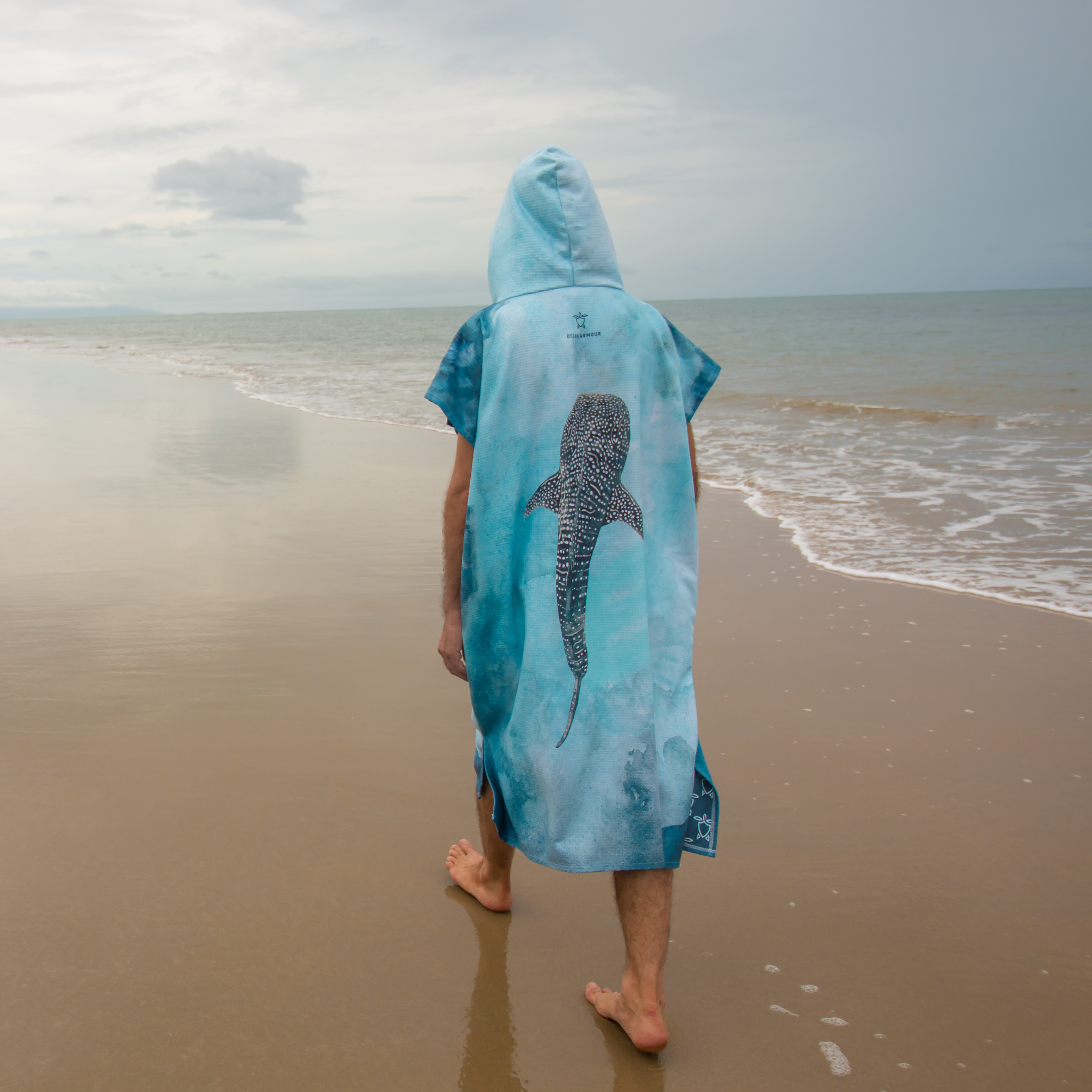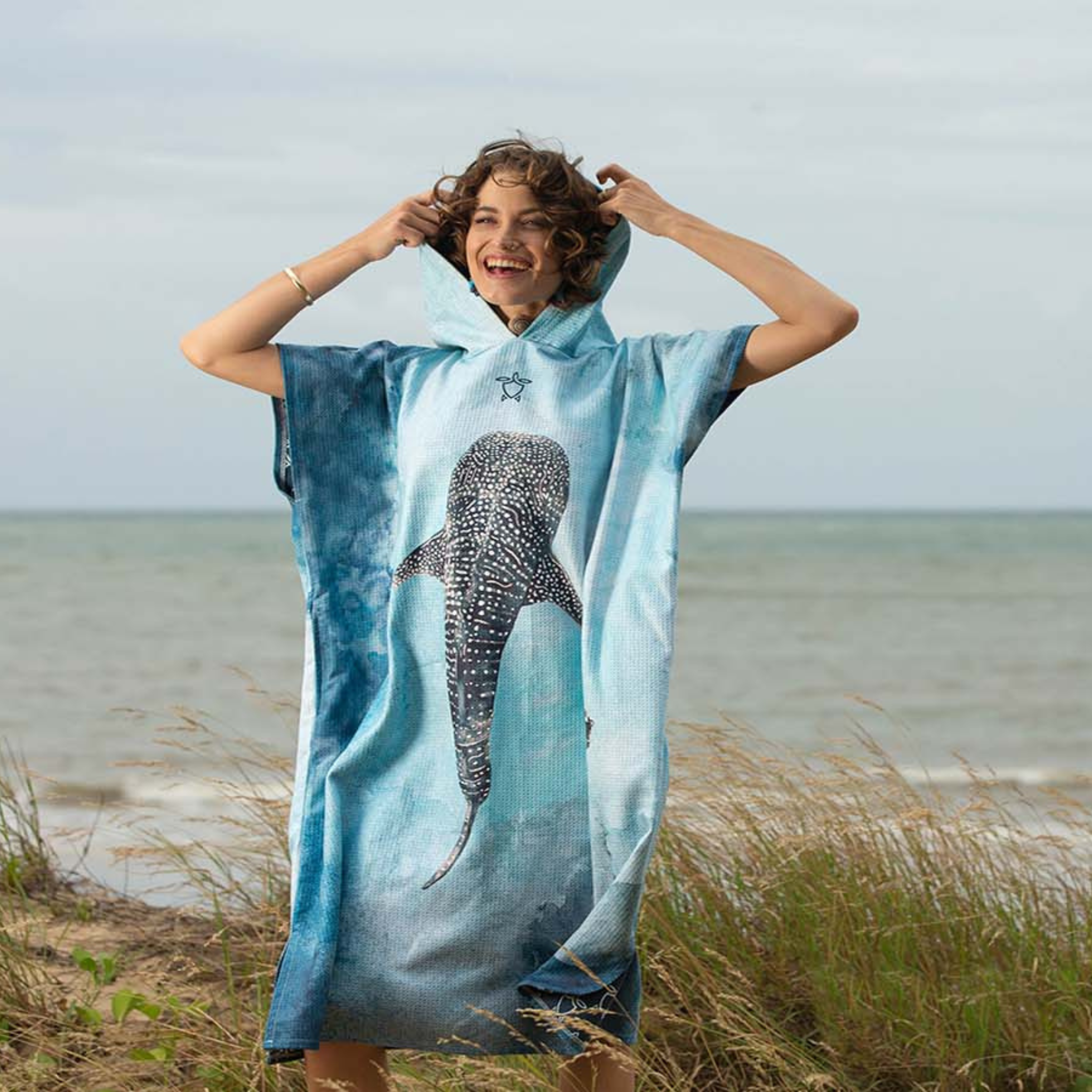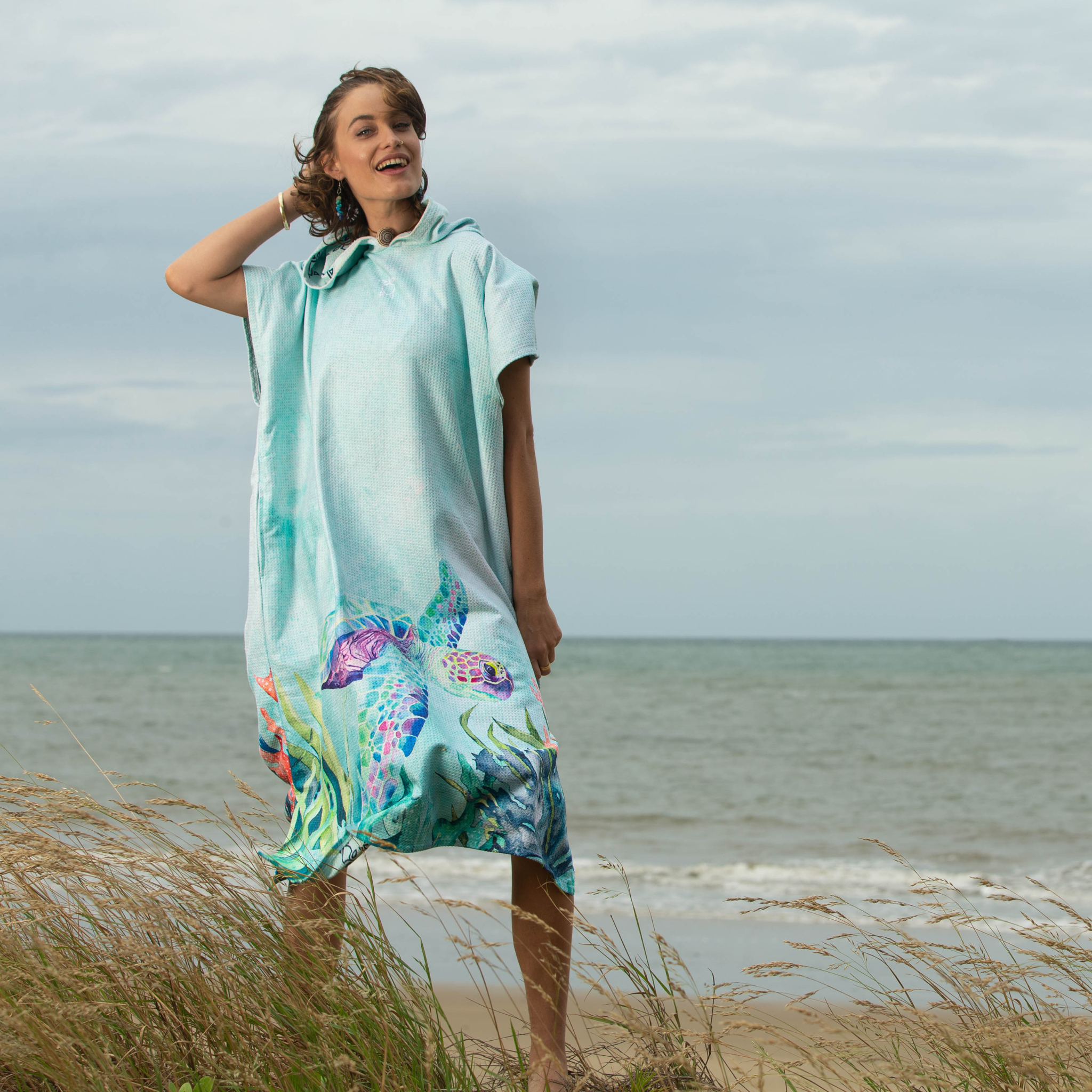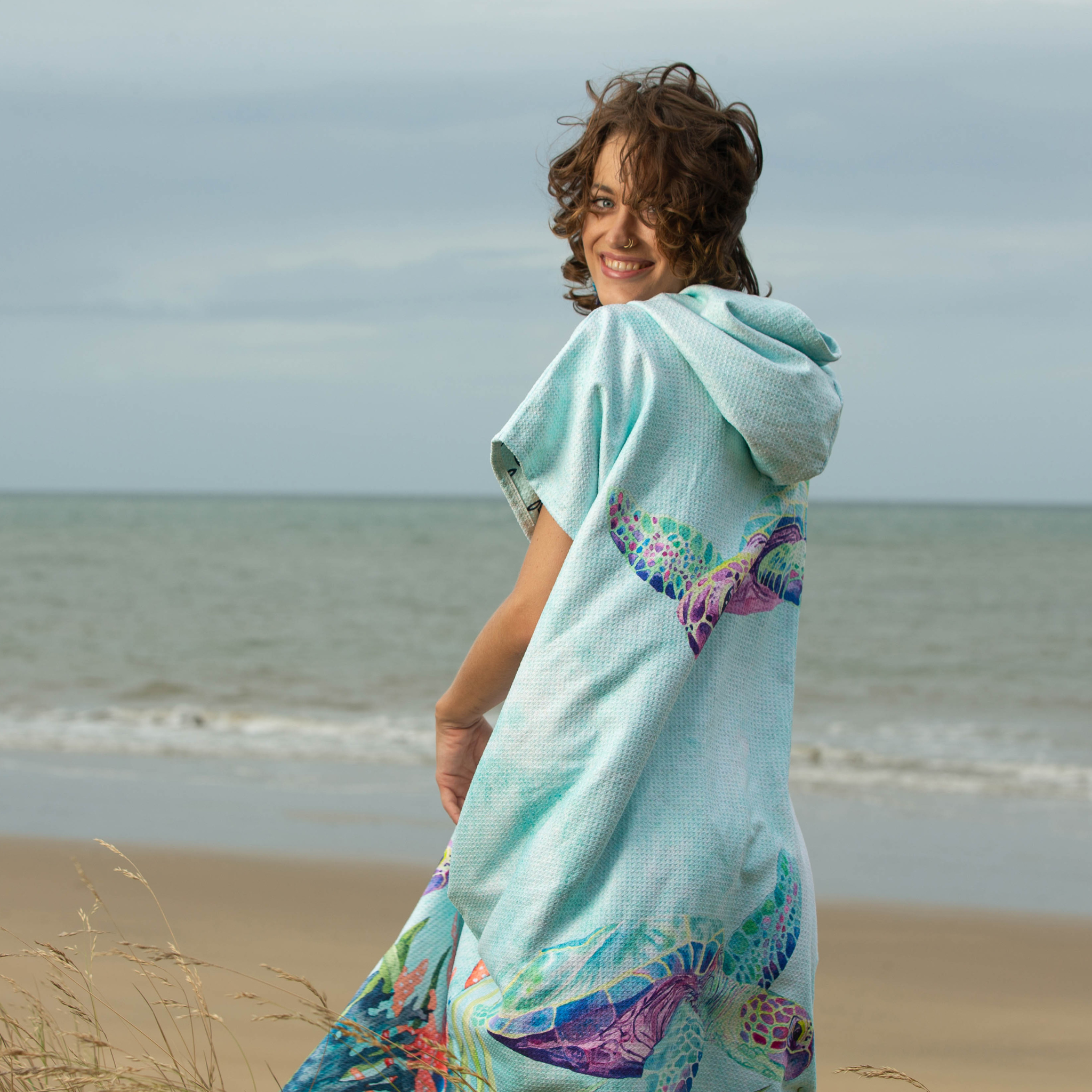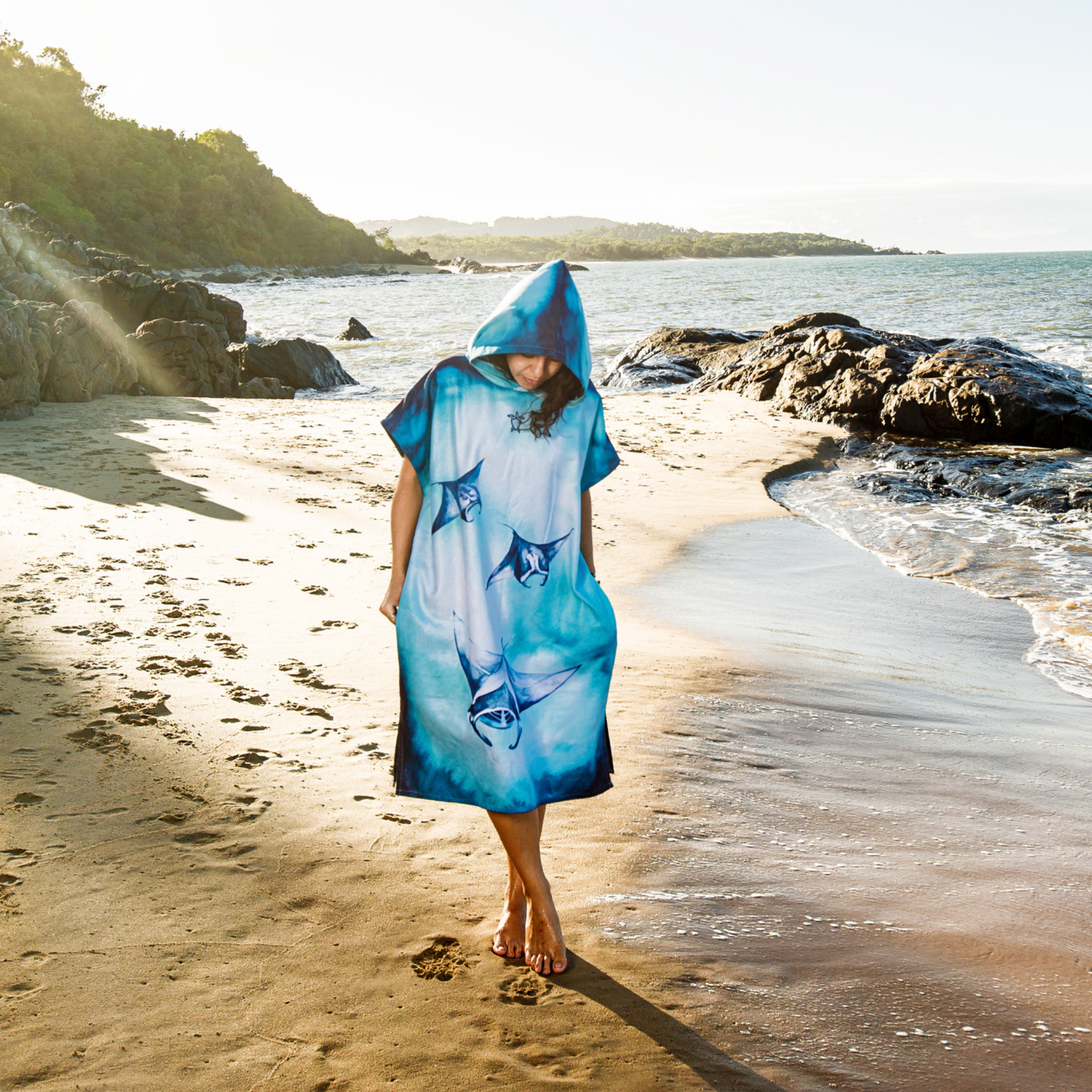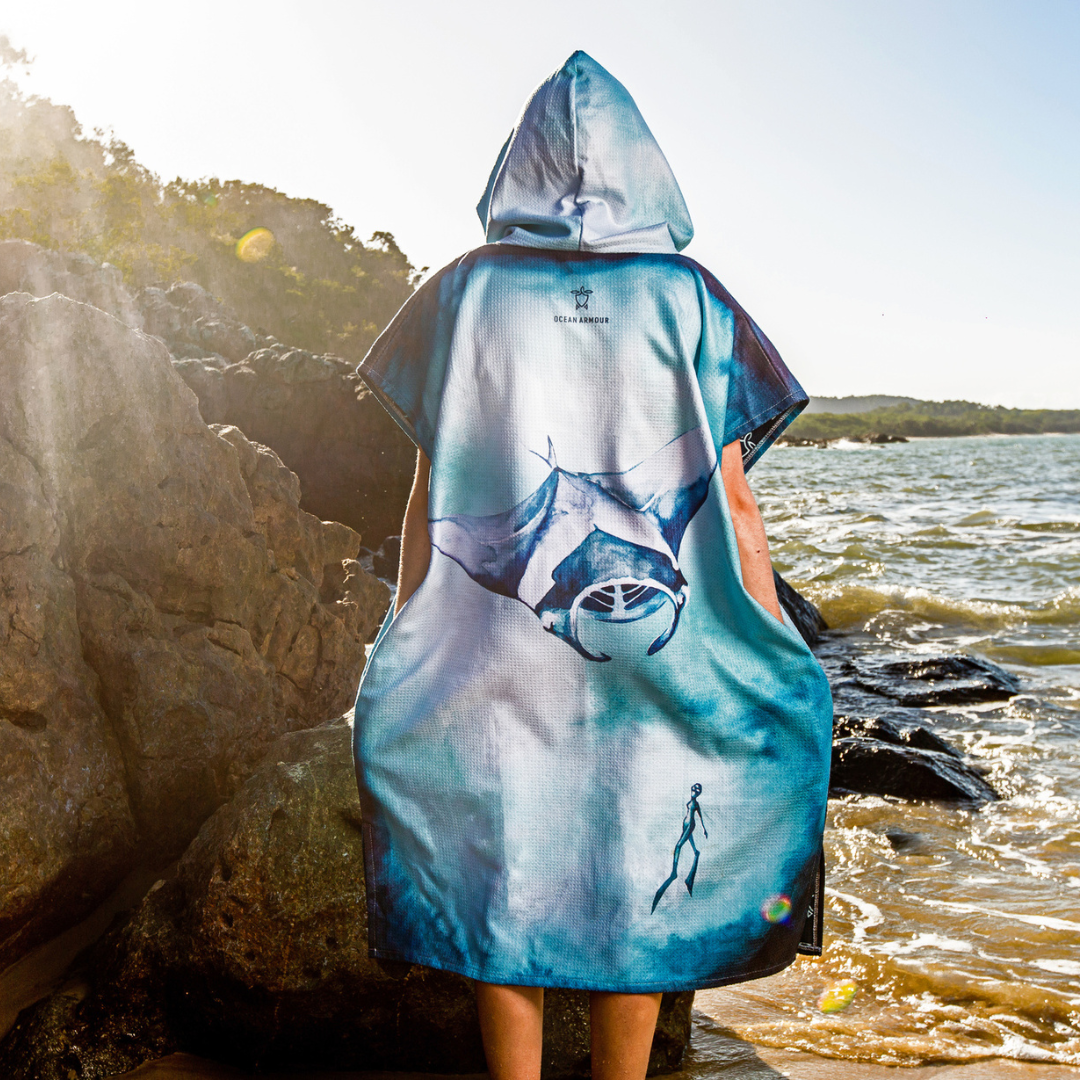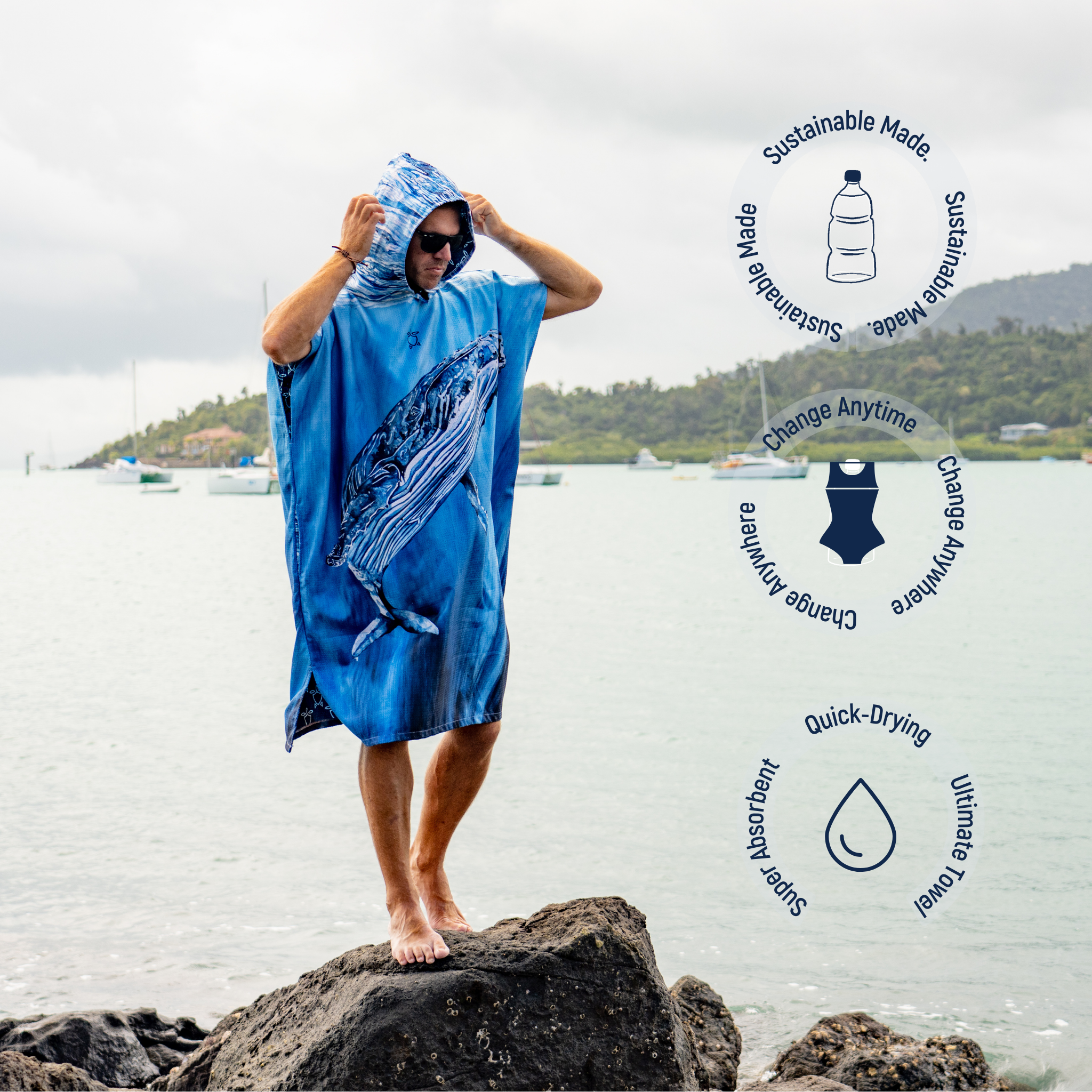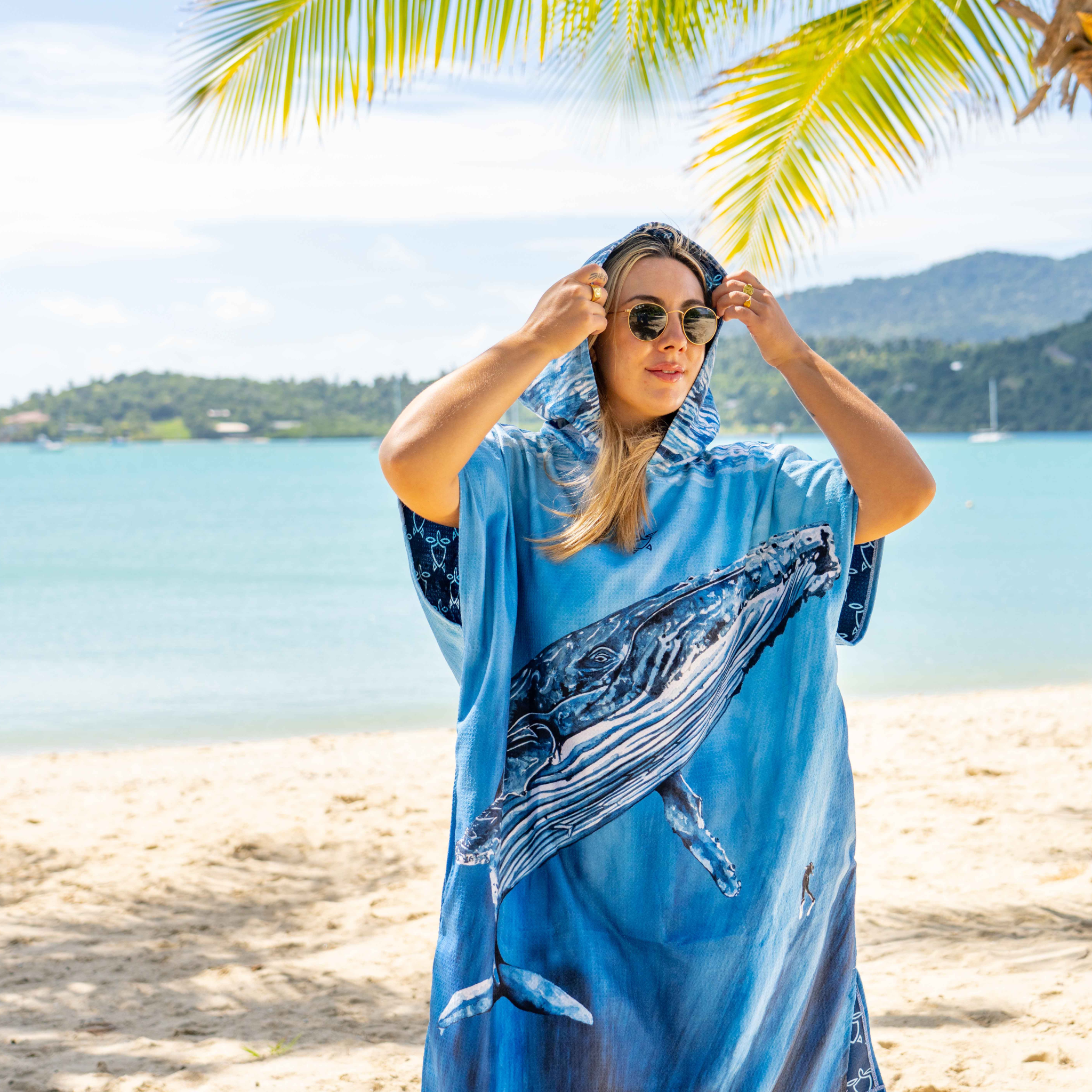Turning single-use plastic into sustainable, quick-dry beach towels
Ocean Armour was born out of our love for our oceans, the amazing ecosystems under the waves, and the marine life that calls them home.
From product to packaging, sustainability is at the core of everything we do.
Want to find out more about how Ocean Armour was born? Find out more about Our Story.
Our beach towels and changing ponchos are made from recycled polyester (rPET).
rPET is produced by taking exisiting materials, like plastic bottles & packaging, breaking them down into tiny pieces, and reforming them into yarn which in turn creates a recycled, sustainable fabric alternative.
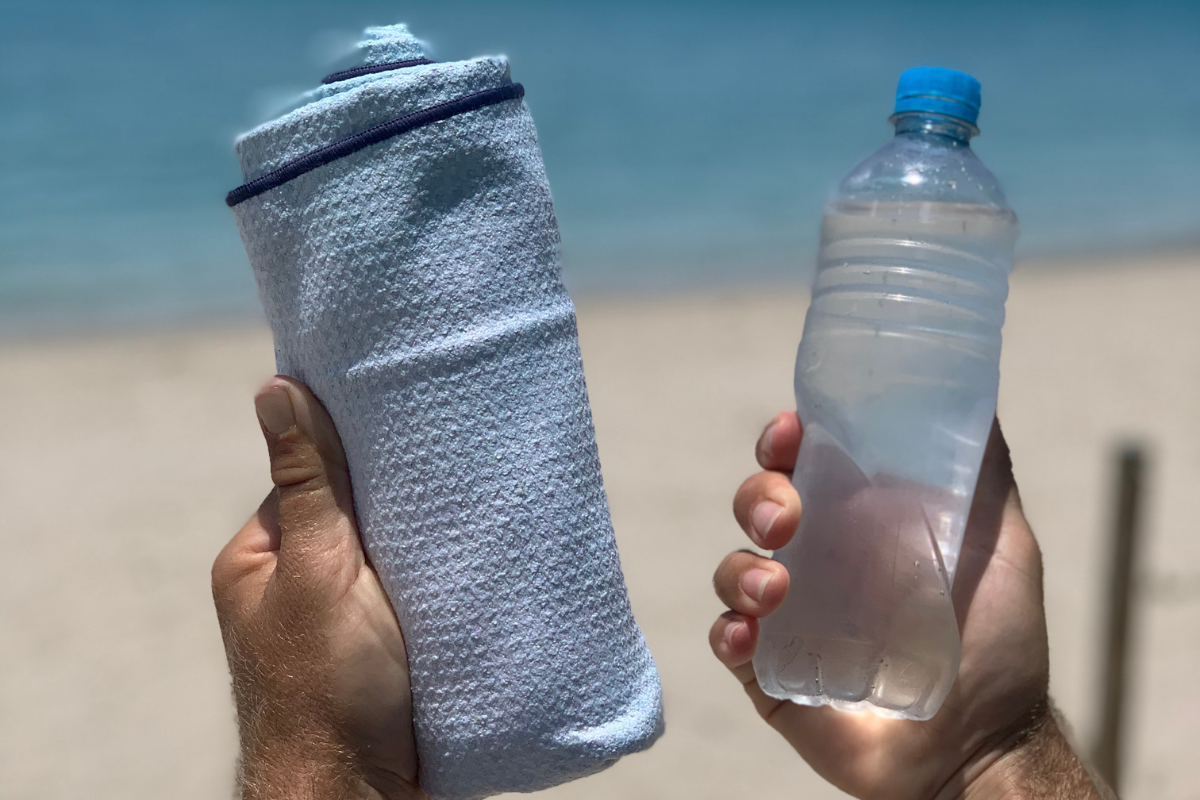
Our rPET fabric offers the perfect combination of sustainability and practicality!
- Quick-drying: the waffle weave allows the fabric to dry 3x faster than regular towel material
- Soft & absorbant: it feels luxurious and can hold 5x its weight in water
- Antimicrobial: less washing & no damp odour
- Compact & Lightweight: folding to half the size of a regular towel
- Sand Free: One quick shake and any sand & dirt will fall off, so you can leave the beach where it belongs!
WHY IS RPET better than the alternatives?
The beach towels or changing ponchos you're currently using are made from either polyester or cotton.

whats the deal with cotton?
Cotton cultivation severely degrades soil quality leaving it unsuistable for growing other crops, or for wildlife.
Cotton requires a huge volume of water... did you know that about 2, 700 litres of water is needed to make a single cotton t-shirt? Crazy, right?!
Plus, the crop needs lots of toxic chemicals - it's the most sprayed crop on the planet. These chemicals pollute thousands of litres of drinking water. For that reason, many people feel cotton isn't only un-environmentally friendly, but also unethical.

WHY IS POLYESTER BAD FOR THE PLANET?
Did you know polyester is a plastic?
Made from crude oil, it's the most common plastic in the world and there's an estimated 36 million tonnes produced every year.
It's found in everything— used to make plastic bottles, athletic wear, rashies, and yes… many beach towels.
Polyester not only pulls finite resources from our planet, every polyester item made will take 500 - 1000 years to decompose.


Yearly we throw away 480 BILLION plastic bottles are - mind-blowing, right?
rPET takes that waste and turns it into a commodity - a planet-friendly yarn with the same practical qualities as the virgin alternative.
The rPET process also uses 90% less water, 70% less energy & has an 80% lower carbon footprint.
HOW OUR FABRIC IS MADE
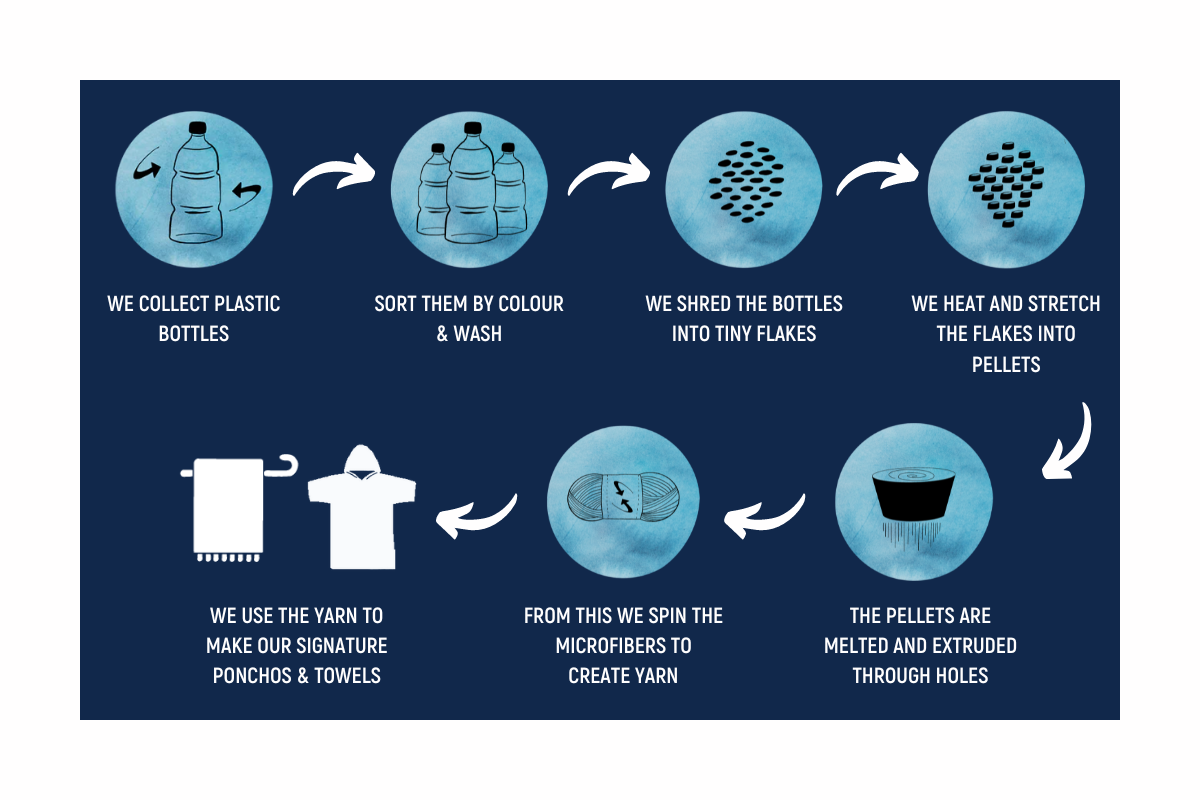

SUSTAINABILITY IS AT THE CORE OF EVERYTHING WE DO
We know recycled fabrics are not perfect. Producing anything comes at a cost.
As a new, purpose-driven business we are committed to always reviewing & improving our footprint on the planet.
- We ship all our orders plastic-free using biodegradable mailers
- We're working with our factory to swap the protective plastic wrapping used when they ship them to us
"STOP WASTE. Stop wasting energy, stop wasting food, stop wasting plastic, and stop wasting time. " David Attenborough


